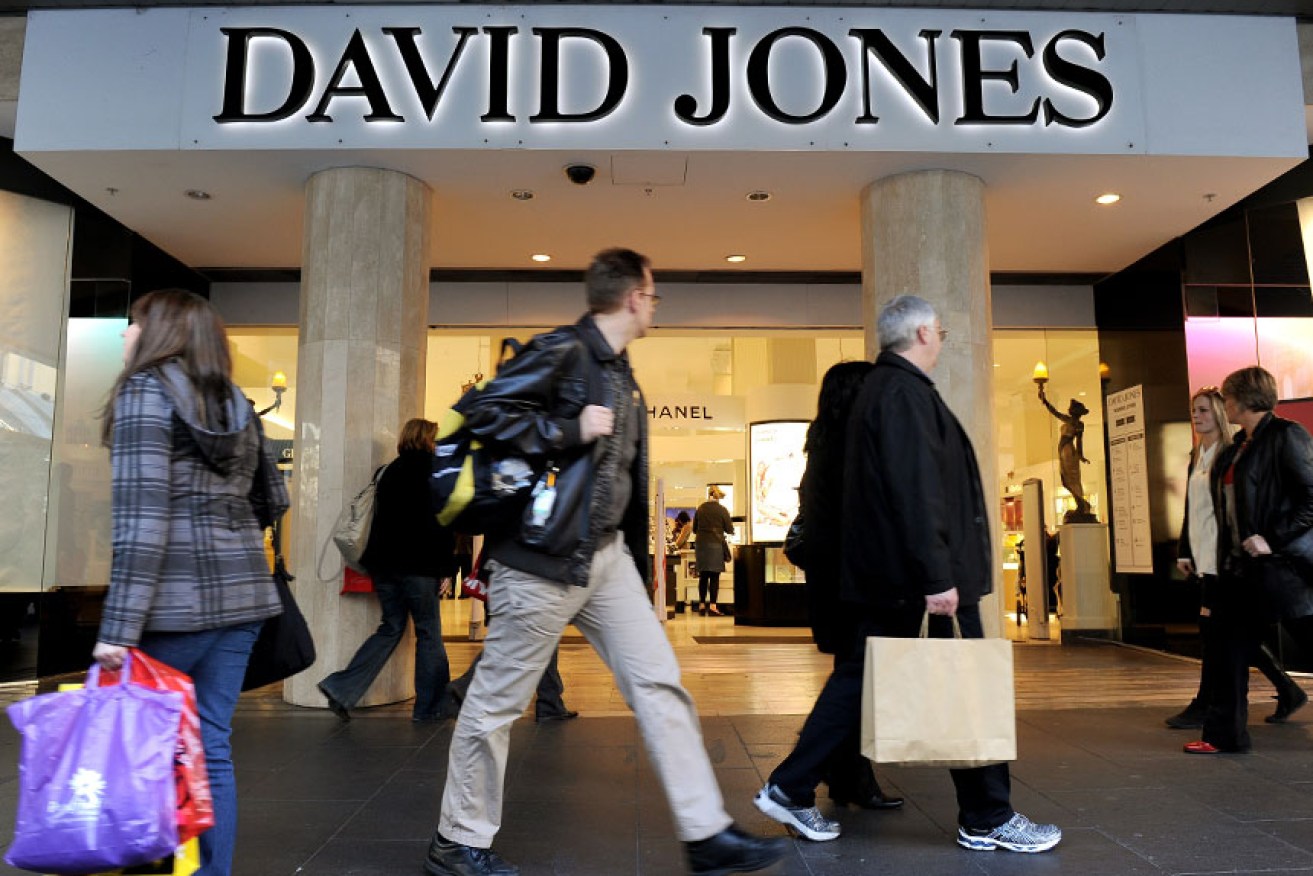‘Challenging time for retail’: Struggling David Jones slashes jobs


David Jones has confirmed the axing of 120 jobs. Photo: Getty
Struggling department store David Jones has confirmed more than 100 staff will lose their jobs as the business seeks to “optimise and change” its offering.
A spokesperson for the business said 30 head office jobs would be cut, with a further 90 axed from non-CBD stores as the business focused more on online sales.
“These changes have been made to achieve greater alignment between our team and the strategic priorities and initiatives of the business,” a spokesperson for David Jones said.
“They reflect our strong focus on cost at a challenging time for retail, and will enable continued investment and innovation in-store and online as we further enhance our multichannel customer experience.”
The spokesperson said the changes affected a “very small percentage” of the department chain’s workforce. Affected staff were being offered “transitional support” – although the spokesperson would not specify what that meant.
David Jones – bought by South Africa’s Woolworths Holdings in 2014 for $2.2 billion – has endured a tough few years. Lowlights include a $712.5 million writedown in 2018 due to the economic challenges facing the retail industry, as well as intense competition and promotions by rivals.
Retail sector remains under pressure
David Jones’ job cuts represent the latest development in an ongoing crisis facing Australia’s department stores.
Most recently, discount retailer Big W confirmed plans to close 30 stores within three years years, beginning with its Chullora, Auburn and Fairfield outlets.
David Jones’ closest rival Myer has faced similar challenges, posting its first full-year loss in 2018. It subsequently flagged changes to its business model, including a renewed focus on private labels to try to improve profit margins.
IBISWorld senior industry analyst Tom Youl said the bad news was likley to continue for the next 12 months.
Mr Youl said Australian consumers were increasingly worried about the economy, with the latest round of interest rate cuts and falling house prices weighing on consumer sentiment.
“With wage growth stagnating and house prices coming down, there’s this perception that people are poorer, and they are – they’re perhaps not as well off as they were a year ago,” he said.
“Once we start to see those property prices rise – which is likely to be towards the end of the year – consumer confidence may get a bit of a boost. But overall consumer expenditure over the year is expected to stay rather stagnant.”
Department stores are expected to be badly affected by the slowdown in spending too, with consumers flocking to boutique outlets and online retailers instead of large brick-and-mortar shops.
However, Mr Youl cautioned that the problems affecting traditional retailers would extend to the broader retail sector.
– with AAP








